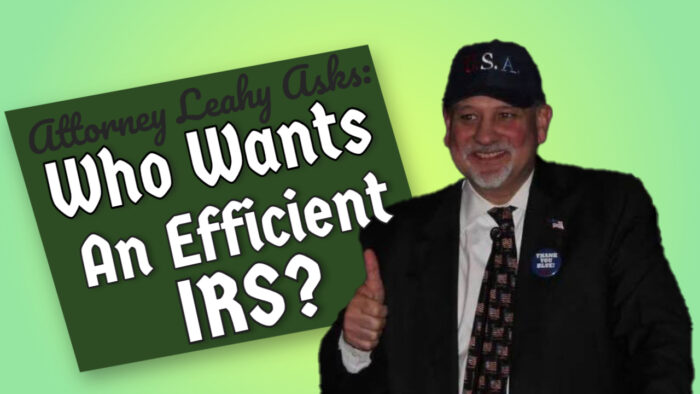
IRS Moves Forward On Their Plan to Monitor All Taxpayer Activity
Recently, I wrote about the danger of the IRS gathering our tax data electronically and using Artificial Intelligence and Machine Learning to monitor taxpayer activity – your activity.
Today the IRS announced plans to go paper-free by 2026 using the funding in the Inflation Reduction Act. I pointed out that the IRS will use that money more for improving their information infrastructure, than auditing individuals and businesses. It wasn’t too long ago the IRS announced the “Free” tax return filing system. And now with the push to paperless filing – all that data will be ripe for data mining.
The IRS says this new initiative will improve customer service and efficiency. But do we really want an efficient IRS? The new IRS Commissioner, Danny Werfel, recently boasted about the IRS introducing the scanning of paper 1040s. He thought that was “history in the making.” Hey Werfel, it’s 2023! Scanning paper has been around for decades.
We have two things to hope for. First, the IRS continues its history of incompetence when it comes to modernizing IRS technology. After all, they have promised improvements since the 1960s, and we are still told how antiqued the IRS computer system is.
Second, Congress cuts more of that $80 billion giveaway in the Inflation Reduction Act. Congress did manage to cut $21 Billion from the IRS budget last May in the debt ceiling negotiations. Let’s hope for more. The IRS budget is still close to $20 Billion a year!
IRS launches paperless processing initiative
https://www.irs.gov/newsroom/irs-launches-paperless-processing-initiative
Remarks by IRS Commissioner Danny Werfel on the paperless processing initiative
Steven A. Leahy is a tax attorney in Illinois. He was the host of the long-running popular Radio Show “The IRS Radio Hour” heard every Sunday evening on AM 560 The Answer. Attorney Leahy is also the author of the book “Deal With Your IRS Problems Today!” You can get a FREE copy of this important book at FreeIRSBook.com. Or Call 24/7 (312)664-6649

